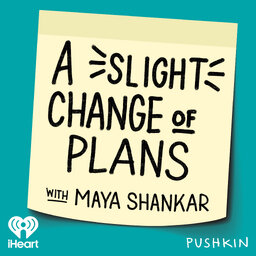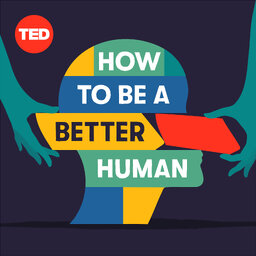Riz Ahmed Plays Himself
Oscar-Nominated actor Riz Ahmed shares how the roles he’s played have changed not only how he sees the world, but also how he sees himself.
You can follow Maya @DrMayaShankar on Instagram.
Learn more about your ad-choices at https://www.iheartpodcastnetwork.com
In 1 playlist(s)
A Slight Change of Plans
What happens when life doesn’t go according to plan? In this award-winning podcast, cognitive scient…Social links
Follow podcast
Recent clips

Brené Brown and Maya Talk “Heated Rivalry,” Mental Spirals, and Moral Beauty
41:59

The Invisible Weight of Olympic Gold
34:12

How to Accept the Messiness of Love
40:42
 A Slight Change of Plans
A Slight Change of Plans